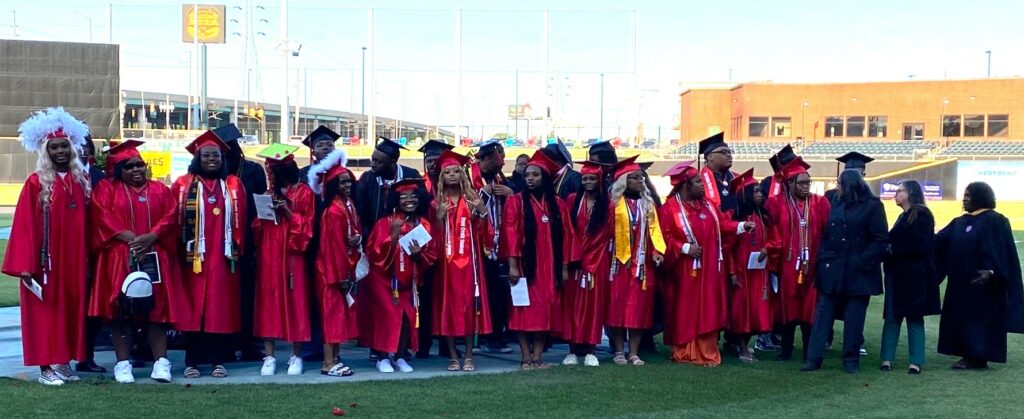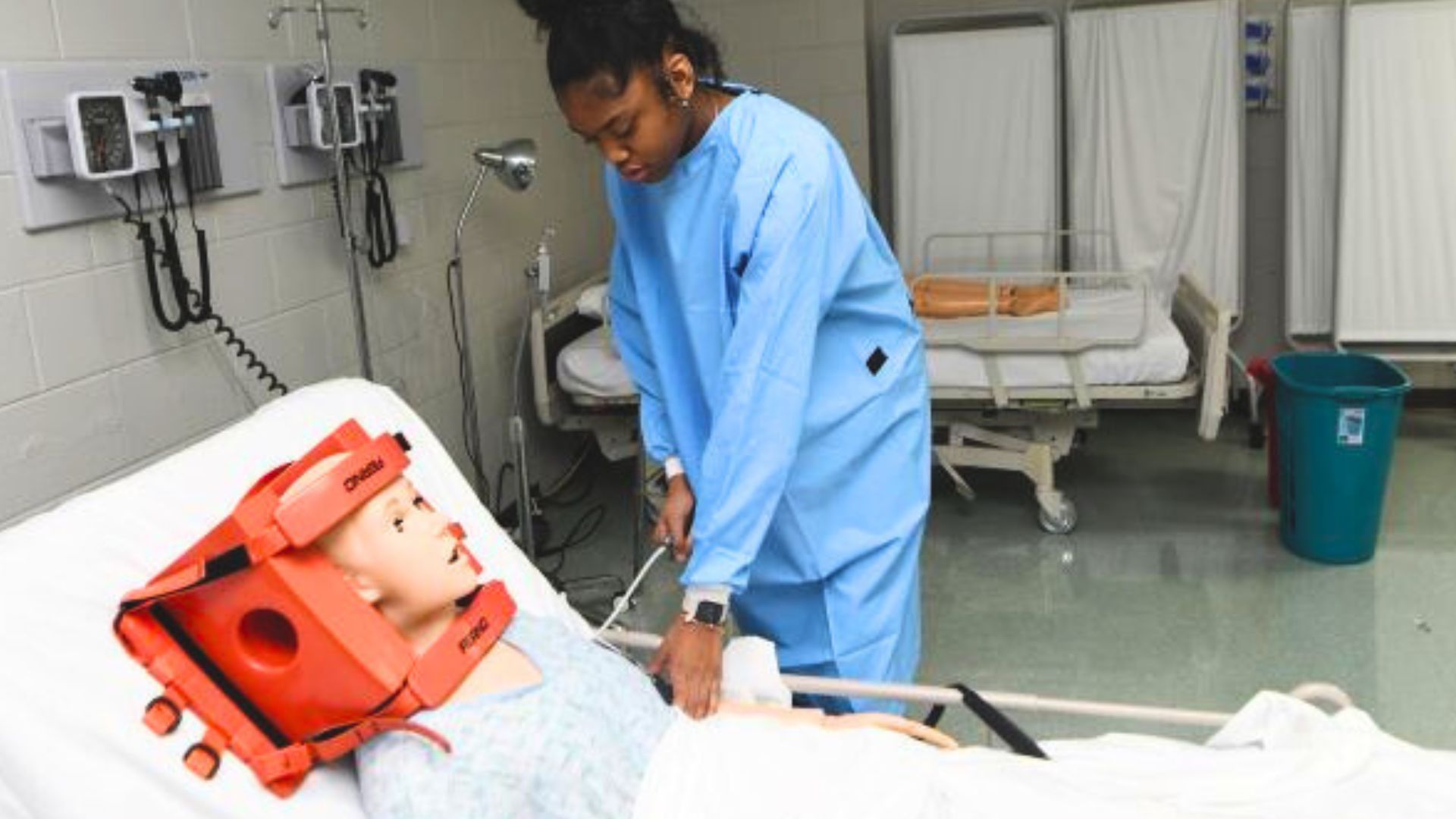A network of innovative high schools is changing the look of college commencements, with some students earning a college degree before their driver’s license.
When students from GEO Academies graduate with their high school diplomas, many will also graduate with associate degrees, or at least some college credits, giving them a head start in their four-year academic career.

“We are not a destination high school. We believe we are launching pads,” says Kevin Teasley, founder and president of GEO Academies.
GEO Academies (Greater Education Opportunities) partner with local community leaders, boards of education and colleges.
With a total of eight schools in Gary and Indianapolis, Ind. and Baton Rouge, La., six not only offer, but require, the dual enrollment of at least one college class while attending. As charter schools with open enrollment, they use public education dollars to fund the college classes, so students attend at no cost to them.
Making Higher Education Part of the Conversation for All High School Students
Both of Teasley’s parents were educators; his father was a professor at Central Michigan University. The expectation and conversations about attending college were typical during his childhood. Once he earned his bachelor degree in journalism and political science, he headed to Washington,. D.C and worked in the White House during the Reagan Administration and continued his career in public policy.

“The public schools I walked by while working in D.C. didn’t look like the schools I went to. They were very strange, very different,” he recalls. “They looked like prisons. Tall fences and rolled wire across the top. It didn’t look like a public school. If you had money, you pretty much left. People who didn’t have money were stuck, and generally they were black, brown and poor. I didn’t feel that was fair to them.”
He eventually moved to Indianapolis, and started the first GEO Academies school in 2002. Teasley says 100% of his students are low-income and students of color. The schools are a not just a training ground for higher education, but they instill the expectation for higher education from the first day.
“With most kids I serve, no conversations (about attending college) are taking place over dinner. In fact, it’s worse than that; it’s ‘When are you going to drop out to get a job and help pay the bills in the house?’ I’ve got to do a better job while I have kids at my schools proving that they can do college,” Teasley says.
“Instead of a dual credit course in a high school classroom, I choose to put them in a college campus with others who don’t look like them, are not the same age, with real college professors to get the experience.”
‘100% Focused on College and a Career’
College partners administer a test called “Accuplacer,” which helps determine if the students are college-ready. If they’re not, GEO Academies teachers focus on remediation. If they are, counselors at the respective GEO Academies guide the students on which classes to take at the colleges. GEO Academies even provide transportation to and from the partner colleges.
“Our goal is to get them off our campus and onto the college campus as quickly as possible,” Teasley says.
That drew Quintasia Marshay to choose GEO Next Generational High School in Baton Rouge, Louisiana. From her freshman through junior years, she rode the school-provided bus to Baton Rouge Community College (BRCC), until she was able to drive herself. She graduated in May with a high school diploma and associate degree in general sciences.
“The most difficult part about going to high school and college at the same time was learning to balance my work load. I started my freshman year and time management skills weren’t in my vocabulary yet. I had to learn how to prioritize my time better while still finding time to maintain a good social life. My schedule generally started with me checking into my high school, traveling to the college for class, and leaving right after,” Marshay says.
She earned a valedictorian scholarship to Xavier University with plans to pursue a career as an orthopedic surgeon.
Her classmate, Morgan Gaspard, also wants a career in science. He graduated with an associate degree in biology from BRCC in addition to his high school diploma. Gaspard is headed to Louisiana State University in the fall with two years of college to build-on and more confidence than he had entering high school.
“I’ll summarize GEO in three words: opportunity, familial bonds and progress,” he says. “Opportunity in the dual enrollment, getting an associate degree while in high school. You can even take the ACT free of charge. Familial bonds in that everyone knows each other. “
Gaspard adds, “You won’t feel alone going through high school because you’ll form close bonds with everyone – your classmates, your college counselor, who wants to know everything about your classes and how you’re doing; you can talk to them about personal problems. And progress: this school values being better than you were yesterday. They don’t want you to settle for less.”

GEO Academies currently enrolls 3,800 students. They don’t all include high schools; those that don’t will add grade levels as students progress. One school is a drop-out prevention program that even adults can attend to earn their diploma.
While college degrees are emphasized, the high schools also help students earn certifications in areas such as welding, certified nursing assistant, accounting and others. One year, Teasley says three students earned their pilot’s licenses. There are also career-readiness components for some programs that include apprenticeships and paying internships.
“Our mission is 100% focused on college and career, and we want our kids to graduate from high school with a tangible certification or college credit degree that says they can do something,” Teasley says.
Some Students Graduate with Bachelor’s Degrees
Since launching in 2002, GEO Academies has graduated 1,000 students. Roughly 10% earn associate degrees.
In some cases, students are earning more. For example, at his oldest school in Gary, Indiana, – Gary Middle College – one student graduated with a full bachelor’s degree from Purdue University when they graduated high school. Two more will graduate in 2024 with bachelor’s degrees before they get their driver’s license, and five more are expected in 2025.
“There’s a steady progression of students proving they can indeed do, and want to do, more than what tradition expects of a high school student,” he says.












